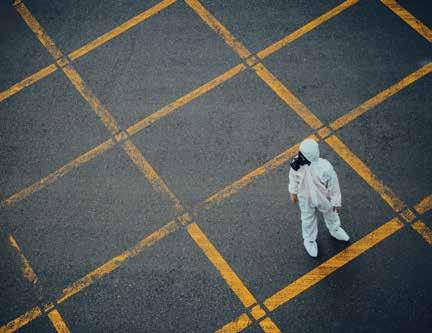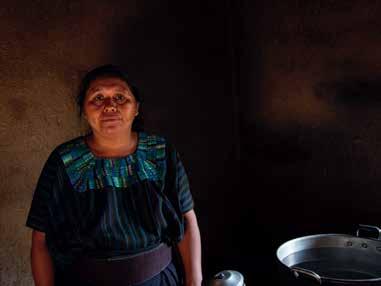
10 minute read
Never pay full price for a holiday again
Ubookdirect offers all NSWNMA members discounted rates on 1000's of hotels Australia wide. Fill in a quote request today to save on your next getaway.
UBOOKDIRECT is giving members a $20 voucher to use on any already discounted member package when booking through the Concierge. To book one of these fantastic destinations log on to https://travelbenefits.ubookdirect.com and click on the ENQUIRY tab or call 1300 959 550.
50% OFF!
Club Wyndham Denarau Island
Vitu Levu, Fiji
Up to 4 guests can enjoy a minimum 7-night stay in a 1 Bedroom Garden View Villa (double sofa bed in living room) right in the heart of Denarau from only $1299.
2 Bedroom Garden View Villa available for 6 guests for just $1599.
Offering direct beach access and an outdoor swimming pool with a swim-up bar, Club Wyndham
Denarau Island, Trademark Collection is located next to Denarau Golf and Racquet Club.
UP TO 50% OFF!
Ramada Resort by Wyndham Port Douglas Port Douglas, Queensland
Up to 4 guests can enjoy a minimum 5-night stay in a 1 Bedroom Garden View Apartment (double sofa bed in living room) from only $699.
2 Bedroom Garden View Apartment available for 6 guests for just $899.
Just 10 minutes’ walk from Four Mile Beach, Ramada Resort by Wyndham Port Douglas is set amongst rainforest gardens and features a tropical lagoon pool with a swim-up bar.
Limited offer! Send an enquiry for your requested dates today! Use your $20 voucher to save even more on these offers.
40% OFF!
Wyndham Sydney
Trademark Collection
Sydney CBD
Up to 4 guests can enjoy a minimum 2-night stay in a 1 Bedroom Apartment (double sofa bed in living room) centrally located in Sydney’s CBD from only $379* Situated just minutes from Hyde Park and Oxford Street, Wyndham Sydney offers airconditioned apartments, secure covered car parking, plus a restaurant and café.
ALL OFFERS: For full t&c’s go to https:// travelbenefits.ubookdirect.com . Subject to availability and block-out dates. Flexi cancellation. Fiji: valid for travel until 20 December 2023. Rate based on 4 adults for a min 7-night stay. QLD : valid for travel until 1 January 2024. Rate based on up to 4 guests for a min 5-night stay. Sydney: valid for travel until 31 December 2023. Rate based on up to 4 guests for a min 5-night stay. *Weekend surcharges apply
Australia
Deaths from COVID-19 in aged care pass 5000
Between 22 December and 25 January, 597 deaths from COVID occurred.
More than 5000 Australian aged care residents have died with COVID-19 since the start of the pandemic. There was a sharp increase in the number of deaths from the end of last year, with 597 deaths nationally between 22 December and 25 January. An update of Department of Health (DoH) data on 27 January recorded 291 active outbreaks in as many aged care facilities. About 1220 active cases were recorded among residents and 432 among staff.
The report revealed staff shortages at dozens of facilities. In the week leading up to 25 January, a surge workforce filled 817 shifts at 46 residential aged care homes.
The temporary surge workforce is a Commonwealth initiative that allows approved facilities to call on a reserve workforce.
Tom Symondson, Chairman of the Aged & Community Care Providers Association, told The Guardian that “the community might be living with COVID, but the pandemic remains very much a reality in aged care”.
The DoH update also revealed high levels of vaccination among aged care residents.
“As at 27 January 2023, there are currently 157,833 residents eligible for fourth doses. In total 134,929 residents, or 85.5 per cent of eligible residents, have received a fourth dose,” the update said.
WHO: World is likely at an ‘inflection point’ on COVID-19
The pandemic still constitutes a public health emergency, the world health body concludes.
WHO extended the Public Health Emergency of International Concern (PHEIC) on 27 January, reported the British Medical Journal (BMJ).
A PHEIC is the highest level of global health alert the WHO can make.
WHO’s Director-General, Tedros Adhanom Ghebreyesus, said countries have made great strides in increasing protection against the coronavirus.
“As we enter the fourth year of the pandemic, there is no doubt we are in a far better situation now than we were a year ago, when the Omicron wave was at its peak,” he said.
However, the number of government-reported deaths has been increasing each week since December 2022, which is concerning WHO experts. At least 170 ,000 people died from COVID-19 in December and January, according to official figures, and the actual number is probably higher because of underreporting.
A surge in infections in China after the country relaxed strict COVID restrictions in December is one driver of the global increase in deaths.
An adviser to the WHO expert committee told the news agency Reuters that the uncertainty surrounding COVID in a country of 1.4 billion people increased the likelihood of WHO extending the PHEIC.
WHO identified several challenges before the PHEIC could be declared over, with vaccination rates in low- and middle-income countries and among the highest risk demographics still insufficient, it said.
United Kingdom
Britain plunged into mass strikes over cost of living
Britain has been rocked by the biggest wave of industrial action in a generation, with nurses and midwives leading the way.
Over 500,000 workers took part in industrial action in Britain on 1 February.
Teachers, ambulance staff and public servants, train drivers, the Royal Mail, university staff, and officials at border posts followed the lead of nurses and midwives, who had struck several times in the previous months and continued to do so through February.
On 6 February, nurses, midwives and ambulance staff stopped work simultaneously, with hundreds of thousands of nurses striking in what is believed to be the biggest strike in the NHS’s history.
Health Secretary Steve Barclay, who had called on unions to call off the strikes, had not held talks with the health unions in the month prior to the strike and had made no attempt to restart negotiations, according to The Guardian.
Polls suggested that nurses and public servants received widespread public support for their strike action despite any inconveniences.
“There is a bedrock of public recognition that people who provide essential services do so from vocation, not to get rich. They expect remuneration and working conditions that are adequate, and that allow them to do the job safely,” editorialised The Guardian.
After visiting picket lines around London and addressing a rally, Mark Serwotka, General Secretary of the Public and Commercial Services union (PCS), described striking members as “very young, very vibrant, very diverse. Lots of first-time strikers, and a real sense from many of them that they felt quite empowered”.
In Latin America and the Caribbean, 131 million people cannot access a healthy diet

UN report shows a clear relationship between the inability to afford a healthy diet and variables such as a country’s income level, the incidence of poverty, and the level of inequality.
A new United Nations report has found that 22.5 per cent of the Latin American and Caribbean population cannot afford a healthy diet. In the Caribbean this figure reaches 52 per cent, in Central America 27.8 per cent, and in South America 18.4 per cent.
This represents an increase of 8 million compared to 2019 and is due to the higher average daily cost of healthy diets in Latin America and the Caribbean compared to the rest of the world’s regions.
The UN said food insecurity will continue to rise due to the food and fuel price crisis caused by the conflict in Ukraine and the aftermath of COVID-19.
“We are talking about the region of the world with the most expensive healthy diet, which particularly affects vulnerable populations – small farmers, rural women, and indigenous and Afro-descendant populations – who allocate a greater percentage of their income to the purchase of food,” said Rossana Polastri from the International Fund for Agricultural Development.
Between 2019 and 2021, the number of hungry people in the region increased by 13.2 million, reaching 56.5 million hungry people in 2021.
In 2021, 40.6 per cent of the regional population experienced moderate or severe food insecurity, compared to 29.3 per cent worldwide.
Australia on track to eliminate cervical cancer by 2035
Free school program reduces infection rate by 92 per cent.
Cervical cancer vaccination levels are on the rise and experts are “highly optimistic” the disease can be eliminated in a little more than a decade.
Australia will become the first country in the world to eliminate cervical cancer if it hits its 2035 target.

Prior to the vaccine, it is estimated up to 90 per cent of Australians were infected with the human papillomavirus (HPV) at some point. HPV causes almost all cervical cancers, as well as a range of other cancers.
The free school vaccination program, which began in 2007, has reduced the HPV infection rate by 92 per cent, which in turn has reduced the rate of cervical abnormalities.
Prof Marion Saville, executive director of the Australian Centre for the Prevention of Cervical Cancer, told The Guardian the latest statistics – up to and including 2020 when the first COVID lockdowns began –show “coverage has been stable and slowly rising”.
“Despite the pandemic, we’re seeing pretty good coverage,” she said.
Prof Saville said the Pharmaceutical Benefits Advisory Committee had recommended the vaccination be available on the Pharmaceutical Benefits Scheme for men and women up to 25 years of age.
In many cases, HPV goes away within a couple of years.
“At a certain point our message is that your better protection is screening rather than vaccination,” Prof Saville said.
‘Historic’ new paid family and domestic violence leave

New laws to provide 10 days’ paid family and domestic violence (FDV) leave came into force on 1 February for workers in businesses with 15 or more employees. For workers in small businesses, with fewer than 15 employees, the entitlement will start from 1 August this year.
Under the new laws:
• all workers – full time, part time and casual – will have access to 10 days’ FDV leave, regardless of whether they work a 38-hour week or fewer hours
• the full 10-days is available immediately when a worker needs it, rather than accumulating over a period like annual and sick leave does
• there are rules in place to keep workers’ information private including that FDV leave must not be included on an employee’s pay slip
• full-time and part-time employees can take paid FDV leave at their full pay rate for the hours they would have worked if they weren’t on leave, while casual employees will be paid at their full pay rate for the hours they were rostered to work in the period they took leave.
Workers in small businesses continue to have access to five days of unpaid FDV leave until their inclusion in the paid scheme from 1 August.
ACTU President Michele O’Neil said: “Paid family and domestic violence leave builds on the long legacy of the union movement winning new rights for workers.”
Australia
New legislation aims for pay transparency
The federal government has introduced a Bill that will force companies to publicly disclose the difference between male and female workers’ earnings.
The Workplace Gender Equality Amendment (Closing the Gender Pay Gap) Bill 2023 requires companies with 100 or more employees to disclose how much they are paying their workers.
Prime Minister Anthony Albanese took to Twitter to announce the introduction of the Bill into parliament, saying: “Women should be paid the same as men. It’s as simple as that.”
Reporting will begin in 2024, using data already provided by employers. Companies’ gender pay gaps are to be published on the Workplace Gender Equality Agency website, for all to see.
Currently, the average Australian woman has to work an extra 61 days a year to earn the same pay as the average Australian man. The gender pay gap currently sits at 14.1 per cent, with women on average earning $263.90 per week less than men.
The ACTU said that Australia has had a poor record in closing the gender gap compared to other countries.

“For too long, individual companies with significant gender pay gaps have been able to evade scrutiny and avoid having to address problems within their workplaces, which has led to women workers being undervalued,” it said.
“That is why this legislation to provide greater transparency is so important.”
Quality legal advice for NSWNMA members
• Workers Compensation Claims
• Litigation, including workplace related claims
• Employment and Industrial Law
• Workplace Health and Safety
• Anti-Discrimination
• Criminal, including driving offences
• Probate / Estates
• Public Notary
• Discounted rates for members including First Free Consultations for members
Offices in Sydney and Newcastle with visiting offices in regional areas (by appointment)
ACROSS
1. A severe systemic reaction to an allergen that occurs in hypersensitive individuals (12.5)
11. Crone (3)
12. A glycoprotein that binds and transports iron (11)
14. The bony projection of the ulna at the elbow (9)
15. The process of holding back or keeping in a position (9)
19. Having needle-like structure (11)
21. Lacking the sense of smell (9)
22. Sweat gland (12.5)
26. Rationale, reasoning (5)
28. Health maintenance organisation (1.1.1)
29. Congenital absence of most of the brain and spinal cord (11)
32. Rapid successions of short, sharp sounds (7)
33. Symbol for erbium (2)
34. Having an additional (third) chromosome (7)
36. A member of the senate (7)
38. Coagulate (4)
39. Dyspnea (9.2.6)
DOWN
1. Hardening of the arteries (8.9)
2. Spine-shaped (9)
3. Hydroxyethyl starch (1.1.1)
4. A strong solution of sodium or potassium hydroxide (3)
5. A common condition which often related to cigarette smoke (7.10)
6. Cauda (4)
7. Produced under conditions involving intense heat (7)
8. A mark left on the skin after a surface injury (4)
9. Descriptive anatomy of the teeth (12)
10. Eager (4)
13. The adipose tissue of the body (3)
16. Expressed in numbers (9)
17. Insulin shock therapy (1.1.1)
18. Ocular protection index (1.1.1)
20. Unreal (9)
23. Apertures frequently closed by membrane (9)
24. A surgical procedure for treating severe sleep apnea (1.1.1.1)
25. Tinea cruris (5.4)
27. Become involved in (3.4)
30. Symbol for neon (2)
31. Cannabis (4)
35. One of the pair of forearm long bones (4)
37. A small child (3)
Blueback
Tim Winton Penguin Random House
RRP $22.99
ISBN 9780143779155
Blueback is an achingly beautiful story about family, belonging, and living a life in tune with the environment, from Tim Winton, one of Australia’s best-loved authors.
Abel Jackson’s boyhood belongs to a vanishing world. On an idyllic stretch of coast whose waters teem with fish, he lives a simple, tough existence. It’s just him and his mother in the house at Longboat Bay, but Abel has friends in the sea, particularly the magnificent old groper he meets when diving.
The War Nurses
Anthea Hodgson
Penguin Random House
RRP $32.99
ISBN 9780143779100
All books can be ordered through the publisher or your local bookshop. Call 8595 1234 or 1300 367 962, or email library@nswnma.asn.au for assistance with loans or research. Books are not independently reviewed or reviewed using information supplied by the publishers.





